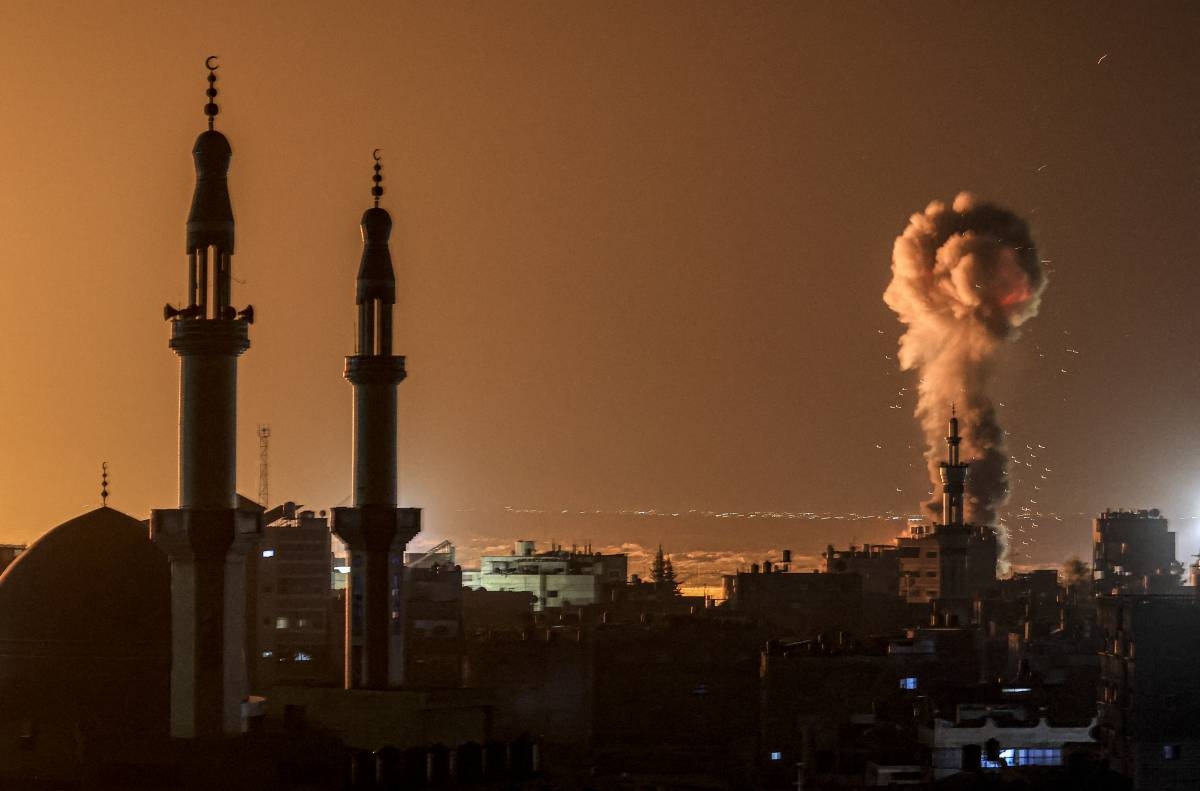A new ceasefire between Israel and Hamas is anticipated to commence as early as Monday and extend through the holy month of Ramadan, according to US President Joe Biden. The agreement would also lead to the release of numerous hostages being held in Gaza.
Mediators from Egypt, Qatar, and the United States have been actively involved in brokering a truce between the warring parties. Proposals have been presented, and negotiations are still ongoing to secure a six-week halt to the fighting and the freedom of Israeli hostages who have been held captive in Gaza since Hamas’ attack on southern Israel on October 7, 2021.
Reports suggest that the truce deal may also include the release of several hundred Palestinian detainees currently held by Israel. President Biden expressed his hope for a ceasefire to be in place by the following Monday, emphasizing that while progress has been made, an agreement “in principle” is still being worked towards. The temporary truce is expected to last throughout Ramadan, which commences on March 10 or 11, depending on the lunar calendar.
President Biden further stated that Israel has agreed not to engage in activities during Ramadan to allow sufficient time for the safe release of all hostages. Sheikh Tamim bin Hamad Al-Thani, the Emir of Qatar, is scheduled to visit Paris on Tuesday to continue his efforts to secure an immediate and permanent ceasefire agreement. Qatar, a country that hosts Hamas leaders, played a crucial role in brokering a one-week truce in November.
Israeli Prime Minister Benjamin Netanyahu has emphasized that any truce would only delay, not prevent, a potential ground invasion of Rafah in the southern part of the Gaza Strip. Netanyahu believes such an invasion is necessary to achieve “total victory” over Hamas. However, there has been significant international pressure, including from the United States, urging Israel to refrain from sending troops into Rafah, where an estimated 1.4 million Palestinian civilians have sought refuge from the ongoing conflict.
The Israeli military has presented its plan to the war cabinet for the evacuation of civilians from Rafah, but details about their relocation have not been disclosed. UN Secretary-General Antonio Guterres has warned that an assault on Rafah, which serves as the entry point for vital relief supplies, would severely hinder aid operations.
In anticipation of a potential ground incursion, Rafah has already been subjected to multiple Israeli airstrikes. One Gazan resident, Sharif Muammar, tragically lost his son in a strike on the city. He tearfully recounted that there were only children present at the time of the attack.
The health ministry in Gaza, under Hamas control, reported that 96 people were killed in the past 24 hours alone. Israeli forces carried out over 52 strikes, with Rafah and the southern city of Khan Yunis being the primary targets. The Israeli army confirmed that targeted raids were conducted in the central Gaza neighborhood of Zeitun and other areas. Militants were eliminated in a tunnel shaft in Zeitun, and several terrorists attempting to flee amidst the civilian population were apprehended.
According to the health ministry in Gaza, Israel’s military campaign has claimed the lives of at least 29,878 people, predominantly women and children. In contrast, the Hamas attack that triggered the war resulted in the deaths of approximately 1,160 people in Israel, mainly civilians.
As efforts continue to secure a ceasefire and the release of hostages, the international community closely watches the situation in the hope of a peaceful resolution to the ongoing conflict between Israel and Hamas.







